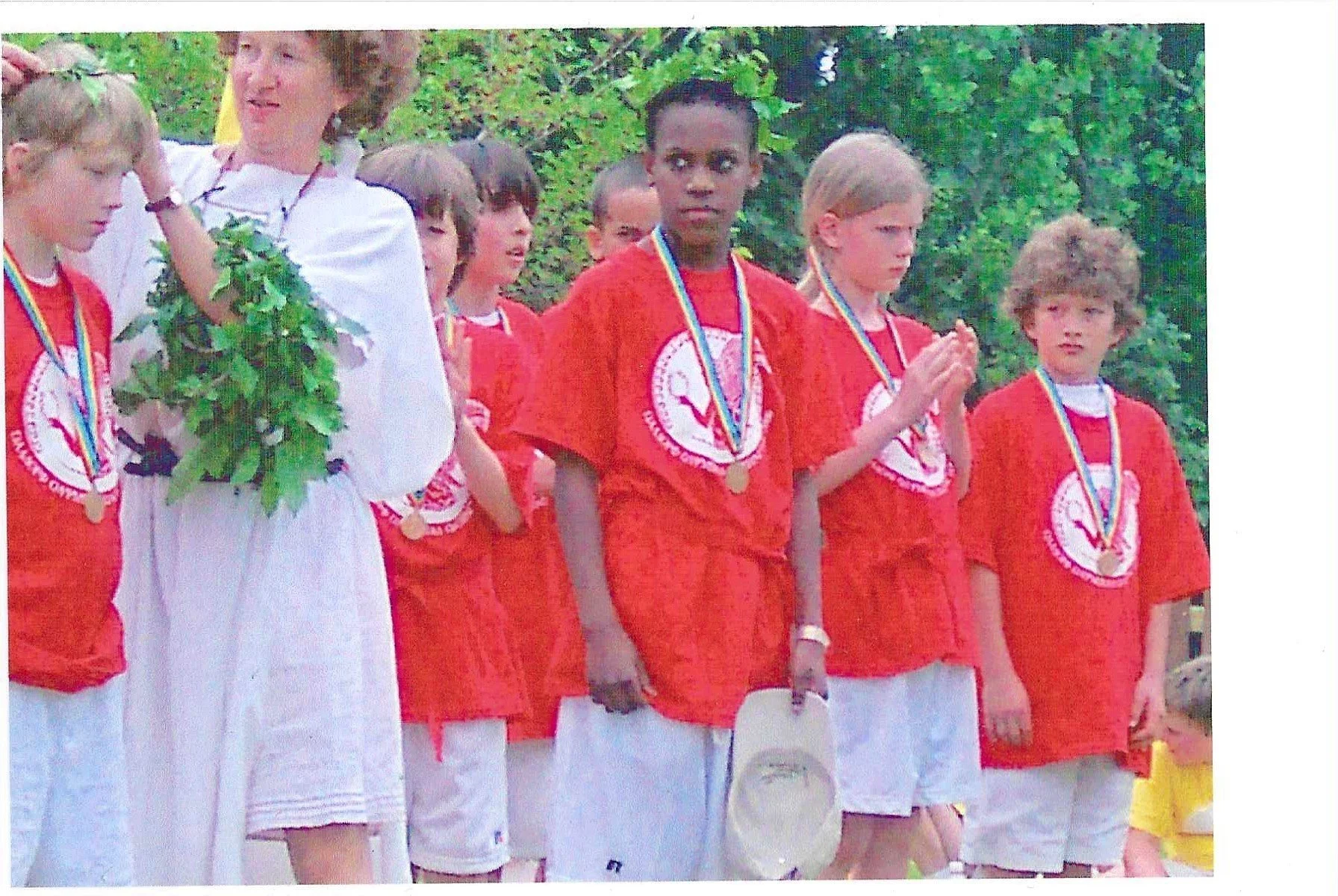Meet Matt Alston: Entrepreneur, Maker, Music Lover
Matt’s successful career in the tech industry was bolstered by the critical thinking skills and creativity that were fostered at the Waldorf School of Atlanta.
A graduate of Waldorf School of Atlanta (2009) and Academe of the Oaks (2013), Matt Alston hadn’t always envisioned himself working in the tech industry. In his first year at Duke University, he switched majors “four or five times” before he was introduced to coding while working in a biomedical engineering lab, eventually leading him to pursue a degree in computer science.
“I was very comfortable exploring, trying a lot of different things, learning what is important to me, what I care about, what kind of impact I want to have in the world, and then pursuing that,” Matt says. That open-mindedness and eagerness to explore are among the qualities that helped him stand out in the tech industry, now as a product manager and startup founder.
Below, we talk more with Matt about his career, his college experience, and his memories of class plays, 5th grade Olympics, and the power of making things in Waldorf education.
Tell us more about your educational background and career.
I was at the Waldorf School of Atlanta from kindergarten through 8th grade, and I graduated from Academe of the Oaks, the local Waldorf high school. Then I went to Duke University, where I studied computer science with a certificate in innovation and entrepreneurship.
Post-grad, I moved out to the Bay Area and worked as a product manager at Uber for about three years before leaving in 2020 to start a company with another Duke alum. My co-founder and I have been building a company called Bonfire since 2020.
What does Bonfire do?
We’re a website builder and fan engagement platform for content creators, with a focus on music artists. We help them have a personal site that feels branded and unique to their identity, but also allows them to build their email list, engage directly with fans, offer premium products and services such as fan club membership or digital downloads.
What qualities do you think helped you succeed as an entrepreneur?
I'm very comfortable going down the unbeaten path. To be an entrepreneur, you have to have conviction about an idea that most of the world isn't going to agree with, and then find the intrinsic conviction and motivation to pursue it anyway.
I talk to a lot of early founders or people who are considering starting companies now. For many of them, it's really hard to make the mental leap of giving up a high paying job or the next step on the career trajectory to do something that feels risky. When thinking about a career, I didn't think within the confines of what I saw other people doing. I was able to think a little bit bigger and be very comfortable taking that leap.
How did your Waldorf education prepare you for advanced academic work at Duke?
Waldorf does an excellent job of teaching critical thinking. As you transition into higher ed and then a career, that is an invaluable skill that allows you to adapt and find success in whatever environment you find yourself in.
In college, I switched majors four or five times before finding what I believe to be my passion. I was very comfortable not knowing, exploring, trying a lot of different things, learning what is important to me, what I care about, what kind of impact I want to have in the world, and then pursuing that.
There's a similar experience in Waldorf where you're trying a lot of things.You're sampling all these different skills and abilities and areas, and you go really broad. Through that you discover, Oh, I really love handwork and knitting. Or I really love music.
I've always felt like that was a strength of mine relative to my non-Waldorf peers—having a very diverse set of interests and experiences, and then being able to draw comparisons throughout life. I ended up in a very technical field, which I wasn't trained in directly.
How did your Waldorf education prepare you for advanced academic work at Duke?
Waldorf does an excellent job of teaching critical thinking. As you transition into higher ed and then a career, that is an invaluable skill that allows you to adapt and find success in whatever environment you find yourself in.
In college, I switched majors four or five times before finding what I believe to be my passion. I was very comfortable not knowing, exploring, trying a lot of different things, learning what is important to me, what I care about, what kind of impact I want to have in the world, and then pursuing that.
There's a similar experience in Waldorf where you're trying a lot of things.You're sampling all these different skills and abilities and areas, and you go really broad. Through that you discover, Oh, I really love handwork and knitting. Or I really love music.
I've always felt like that was a strength of mine relative to my non-Waldorf peers—having a very diverse set of interests and experiences, and then being able to draw comparisons throughout life. I ended up in a very technical field, which I wasn't trained in directly.
That open-mindedness and openness to taking risks is something many Waldorf graduates express—and it seems suited to the tech world.
The world is increasingly dynamic. Things are changing rapidly. And things can spread really wildly. In tech, the biggest, latest, greatest thing is AI. And now everyone is trying to wrap their heads around what this new world with artificial intelligence will look like.
I find that when things are changing around you really quickly, being able to think critically is the most important thing. Because if you spent your whole life preparing for this exact role in this exact field, the world might change by the time you get there. The thing that you can most reliably fall back on is your ability to adapt and think critically about what's going on.
What other important skills did you take away from your education at the Waldorf School of Atlanta?
The process of creation. It’s one of the constants across handworking, woodworking, and a lot of the main lessons. The process of seeing something through to the end and having an artifact of it, whether it's your main lesson book or a hat or a bowl.
I exist in this world where most people don't know how things are made. And having that experience, over and over again, throughout your childhood—of making things, but also seeing how things get made—made starting a company feel way more attainable because I've seen the process of creation countless times throughout my childhood.
What are some of your best memories from WSA?
I always enjoyed school and enjoyed the process of learning, and I thrived in a more intimate school environment. You move through school with a group of people that is relatively small and consistent. I made many, many lifelong friends.
One of the top memories was the fifth grade Olympics. We went to DC. So we took an overnight train from Atlanta, which was so much fun. And then getting to meet kids from other Waldorf schools who all had a ton of shared experience by going through Waldorf, but had different upbringings, different environments, different cities.
The other thing was the plays. That's something I really loved. And it’s still something that I proudly tell people—Oh yeah, I've been in close to a dozen plays. It was always the butterflies beforehand, but those were the same butterflies for me before a big sports game or sports event—and now it's before a big pitch meeting or if I'm making a sales call. I got a lot of practice, being outside of my comfort zone, being in front of people, doing something mentally taxing, like remembering lines while you're in front of a hundred people.
I thought it was really, really cool—and it definitely translates to things like public speaking or even how I carry myself in public settings to this day. It’s a pretty unique experience.





